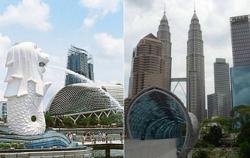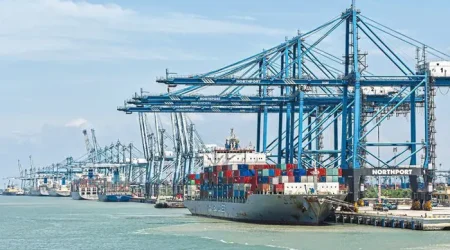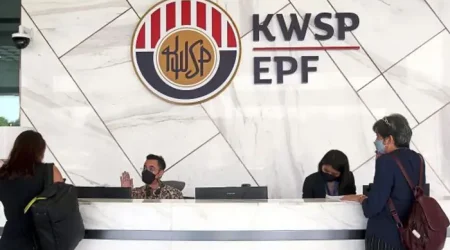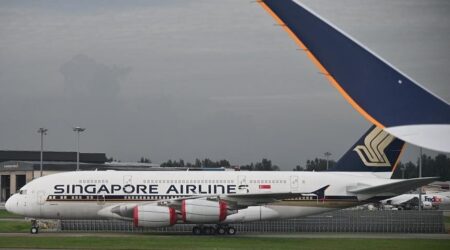Malaysia is next best bet – Country can position itself as viable alternative to S’pore
PETALING JAYA: With some Japanese multinational corporations (MNCs) looking beyond Singapore to base their regional headquarters due to the rising cost there, Malaysia has what it takes to position itself as a viable destination, say economists.
Sunway University economics professor Dr Yeah Kim Leng said Malaysia’s investment promotion efforts and its rising competitiveness in attracting multinationals to relocate from Singapore and elsewhere are gradually bearing fruit.
“Its well-developed physical, financial and logistics infrastructure, harmonious industrial relations, multilingual workforce and embedded global value chains are gaining increasing attention among foreign investors looking at opportunities in the dynamic Asean and Asian region as a whole,” he said.
ALSO READ: Foreign firms keen to do business due to cost advantage
By further enhancing government administrative efficiency and coordination effectiveness, as well as sharper policies focusing on facilitating trade and investment, Malaysia would become even more attractive as the next best alternative to Singapore, which is facing rising costs and growth constraints, he added.
“In addition to presenting opportunities for firms here to plug into the global value chains created by MNCs, domestic suppliers and service providers will need to up their game in terms of product and service quality, reliability and cost-efficiency.
“The efficiency of local supply chains will have a ‘crowding in’ effect that would further boost Malaysia’s appeal as a global service and manufacturing hub,” Prof Yeah added.

Economist Geoffrey Williams said despite sharing similar advantages with Singapore, such as the use of English language, high-quality workers and regional access, Malaysia has the edge over the city-state in terms of being cost-effective.
“There are also some good companies in key sectors such as technology and finance to work with in Malaysia.
ALSO READ: Right time to tap into alternative investments
“Against Indonesia and Vietnam, these advantages are also helping, but the Malaysian market is small. Vietnam is three times bigger and Indonesia is nine times larger.
“They are also opening up directly to MNCs,” he said.
Although the recent surge in applications and approvals for investments is positive, it must be converted into actual investments, Williams said.
“Historically, only 26% of foreign direct investment (FDI) approvals result in actual investment.
“So, the process must be streamlined with less red tape, quicker approvals of working permits, easier access to financial help and even to open bank accounts, and in general, a more welcoming low-tax, low-regulation, agile and competitive ecosystem is needed,” he added.
ALSO READ: RAM-CTOS: Malaysia’s business sentiments turn positive in 1Q24
Malaysian Institute of Economic Research (MIER) head of research and senior research fellow Dr Shankaran Nambiar said by and large, Malaysia has “excellent infrastructure” although it will have to be constantly upgraded.
“All we need to do is to fine-tune some of our existing assets and put in place some structural changes. More could be done to reduce bureaucratic processes.
“Similarly, the offerings and roles of the central and state agencies can be brought into closer alignment,” he said.
More challenging would be to develop talent consistent with emerging technologies and to bring research and development (R&D) up to mark, he said.
“If we could attract FDI with our R&D capacity, that would be a real investment-puller,” Shankaran added.
Nikkei Asia recently reported that although Singapore is unlikely to be dethroned as the leading hub for Japanese companies, Malaysia and Thailand are potential alternatives.
The report also noted that printing ink maker Sakata Inx did not choose Singapore as its regional head office base, despite already having a presence in the region, but instead established it in Malaysia due to tax incentives.
According to the findings of a poll by the Japan External Trade Organisation released in March, among Japanese companies which had their regional headquarters in Singapore, 31% had partly relocated their functions to another country or were considering doing so.
In the 2019 edition of the survey, only 7.4% companies had indicated the same.
In a 2023 survey by the European Chamber of Commerce in Singapore, 69% of respondents indicated that they were willing to move some personnel out due to the rising cost of operations in the city-state.
Meanwhile, the Malaysian Investment Development Authority (Mida) reported a historic investment performance in 2023, with approved investments valued at RM329.5bil across various economic sectors.
InvestKL attracted a record-breaking RM8.7bil in FDI in 2023, a 300% jump from the RM2.79bil in 2022.
About 66% of these investments, valued at RM19.74bil, have already materialised. This translates into the creation of 27,000 executive jobs, of which 74% has been filled, said InvestKL.
It added that 12 leading global corporations from the Americas, Europe and Asia regions drove the FDI.
InvestKL chief executive officer Datuk Muhammad Azmi Zulkifli said in March that the unprecedented FDI into Greater KL showcases the city’s attractiveness across diverse sectors such as technology, healthcare, finance and engineering, signifying a major achievement in efforts to attract high-value activities.













Leave a Reply